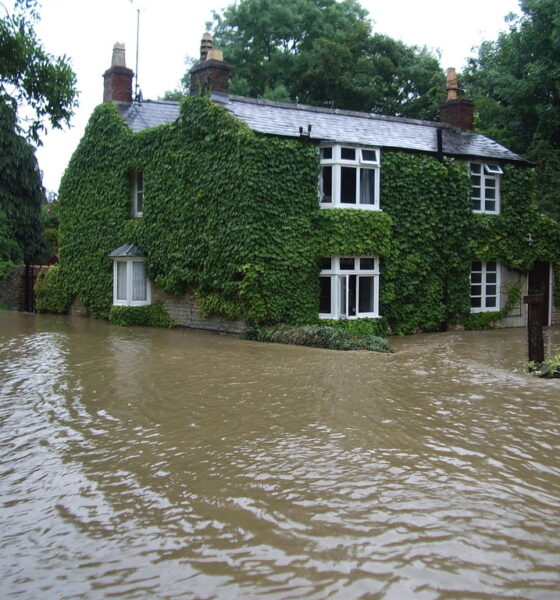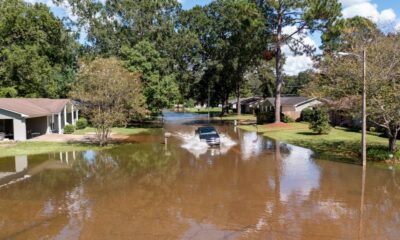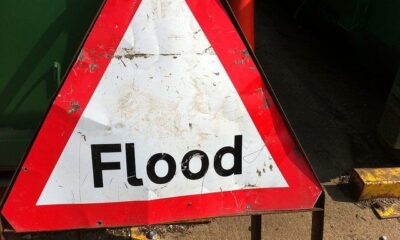

Environment
Fears over maintenance of flood defences
Various reports have said that there will be an increase in flooding in the UK, but confusion reigns over who is responsible for managing the risk. Charlotte Reid has more.
The Public Account Committee (PAC) has published a report on flood risk management in the UK, which says that one in six homes is currently at risk of flooding.
Various reports have said that there will be an increase in flooding in the UK, but confusion reigns over who is responsible for managing the risk. Charlotte Reid has more.
The Public Account Committee (PAC) has published a report on flood risk management in the UK, which says that one in six homes is currently at risk of flooding.
Chair of the committee, MP Margaret Hodge, said, “It is unclear where the buck stops and who is ultimately responsible for managing the risk of flooding”.
She added, “There is also a great deal of uncertainty about whether there will be enough money to maintain and improve flood protection in the longer term and who will pay”.
There have been a number of reports that say that the UK will see an increase in flooding. The Government’s Climate Change Risk Assessment, released last week, said that by 2080, five million people are likely to be affected, and a report from the Met Office last year said more people are at risk of coastal flooding because of climate change.
Yet a report from the National Audit Office last year said that the amount spent on flood defences had already been cut and looks to get smaller.
A spokesperson from the Department of Environment, Food and Rural Affairs (Defra) said in the Guardian that “the country is better prepared than ever before to deal with a major flood”.
All this confusion has also caused problems for the insurance industry. The Association of British Insurers (ABI) has analysed the latest flood data from the Environment Agency. The ABI found that there are thousands of homes at significant risk of flooding, with the most at risk in the Lincolnshire towns of Boston and Skegness.
This forced the ABI to warn the Government that the insurance industry’s voluntary flood agreement ends in June 2013. It suggests that a new long-term agreement needs to be made quickly to avoid 200,000 households getting flood insurance after the current agreement expires.
Otto Thoresen, ABI’s director general, said, “We are running out of time to make sure that people in high risk areas are properly protected from the devastation flooding can cause and the ball is now in the Government’s court”.
Hodge says the confusion is “fuelling uncertainty over the future availability and affordability of insurance cover for buildings in areas at risk of flood” and also said the Government needed to make a new agreement with the insurance industry “urgently”.
The insurance industry is already aware of the importance of environmental issues because it has a direct effect on their work. Thoresen said, “Insurers want to make sure that every home has access to affordable insurance, should the worst happen, and we’re concerned that those people most at risk will lose out”.
This shows what the impact of climate change will be like and we cannot afford to ignore it. Whilst the Government needs to do more, you can as well.
To reduce your carbon emissions talk to Good Energy to find out more about the alternatives to using fossil fuels to power your home.
There are also a number of sustainable and ethical investment opportunities and to find out more talk to your IFA or fill in our online form for us to put you in touch with an ethical adviser.
Picture source: Marilyn Peddle


 Environment12 months ago
Environment12 months agoAre Polymer Banknotes: an Eco-Friendly Trend or a Groundswell?

 Features11 months ago
Features11 months agoEco-Friendly Cryptocurrencies: Sustainable Investment Choices

 Features12 months ago
Features12 months agoEco-Friendly Crypto Traders Must Find the Right Exchange

 Energy11 months ago
Energy11 months agoThe Growing Role of Solar Panels in Ireland’s Energy Future




























